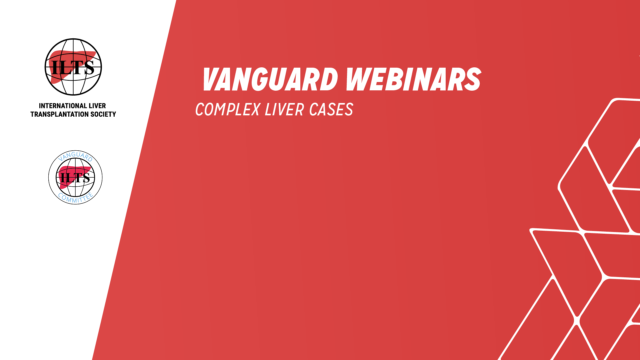ILTS Insights: Elements of Successful Machine Perfusion Practice
For ILTS members only, please join now or renew your membership.
Sorry, you don't have access to this webinar!

For ILTS members only, please join now or renew your membership.
Objectives:
How to set up a machine perfusion program:
- Update on the clinical developments in machine perfusion
- What do you need to start a successful program
- Pros and cons of different techniques
Agenda:
- Introduction by Amelia Hessheimer
- Latest in machine perfusion and benefits of machine perfusion versus common non-machine practice (Markus Selzner)
- What do you need to start a machine perfusion program? (Georg Lurje)
- Pros and cons of different machine perfusion techniques (Jeroen de Jonge)
- Q&A moderated by Paolo Muiesan and Luciano De Carlis
Organizer
 |
Amelia Hessheimer is a Specialist in Hepatopancreatobiliary Surgery & Liver Transplantation Unit at the Hospital Clínic in Barcelona, Spain. Dr Hessheimer has a background in Chemistry, Medicine, and Surgery. Currently, Dr Hessheimer performs both clinical and experimental work in the field of liver transplantation, with primary areas of focus related to donation after circulatory death, perfusion technologies, and strategies for the successful transplantation of partial liver grafts. |
Speakers
 |
Markus Selzner pursued a residency in the Department of Surgery at the University of Cologne and completed a three-year research fellowship focusing on hepatic reperfusion injury at the Duke University Medical Center. Dr Selzner continued his residency at the Department of Visceral-and Transplantation Surgery at the University Hospital of Zurich, where he also completed a clinical fellowship in Liver/ Pancreas Surgery and Liver Transplantation and was appointed Assistant Professor of Surgery and Surgical Attending in 2003. After a second fellowship in Toronto, he was recruited as an abdominal organ transplant surgeon at the University of Toronto, where he is currently Surgical Director of the UHN Liver Transplant Program and Co-Director of the Abdominal Organ Transplant Fellowship.
|
 |
Georg Lurje is a Consultant HPB and Transplant Surgeon at the Charité Berlin. His research interests include the reconditioning of borderline transplantable donor organs by ex-vivo machine perfusion prior to organ transplantation, risk stratification of patients with primary liver tumors and mechanisms of ischemia-reperfusion injury. Dr Lurje is Review Editor of “Frontiers in Physiology” as well as Prinicipal Investigator of the HOPE ECD-DBD (clincialtrials.gov: NCT03124641) and the HOPE-NMP (clincialtrials.gov: NCT04644744) machine perfusion multicenter randomized controlled trials. In 2020, he was a recipient of the von-Langenbeck award of the German Surgical Society and the ILTS Rising Star Award.
|
 |
Jeroen de Jonge was trained in HPB surgery and liver transplantation at the Erasmus MC, Rotterdam, The Netherlands. During his training he did an ESOT research fellowship in Kim Olthoff’s group at UPENN, Philadelphia. As a senior staff member at the Erasmus MC Transplant Institute, his main interest is in amelioration of the results of liver transplantation, especially DCD and ECD donor livers. He founded the Rotterdam liver machine perfusion program (cold and warm), and the Netherlands NRP program. He was senior Co-author on the DHOPE study paper recently published. Jeroen is a board member of the Dutch Transplantation Association. |
Moderators
 |
Paolo Muiesan is a Professor in HPB Surgery and Transplantation at the University of Birmingham. He leads the living donor, auxiliary, domino and DCD liver transplantation programs. Other clinical and research interests include normothermic regional perfusion and machine perfusion as novel means of organ preservation for transplantation. He currently leads the surgical program for the treatment of cholangiocarcinoma.
|
 |
Luciano De Carlis is Professor of General Surgery at the University of Milano-Bicocca School of Medicine, Director of the Department of Surgery and Chief of the Abdominal Transplant Program at Niguarda Hospital, Milan, Italy. He studied in Milan and trained in Pittsburgh (USA), Essen (Germany), Tokyo, and Kyoto (Japan). He has performed, as first surgeon, more than 5,000 major operations in the field of General Surgery with a special focus on hepatopancreatobiliary surgery, vascular surgery, and transplantation (liver, kidney, and pancreas), with more than 8,000 operations performed in Niguarda Hospital under his direction. He performed the first liver transplantation from a DCD with more than 20 minutes of circulatory arrest according to the Italian law. |
This Webinar is Supported by: Bridge to Life
ILTS would like to thank Bridge to Life for their generous support for the production of this webinar. Bridge to Life has had no influence on the content, and full editorial control remains the sole responsibility of ILTS.
 |
Bridge to Life is a leading supplier of preservation solutions globally with a focus on innovation in organ preservation and machine perfusion. Through a strong focus on collaboration with surgeons and transplant professionals, Bridge to Life continues to explore emerging science and preservation technologies. |







